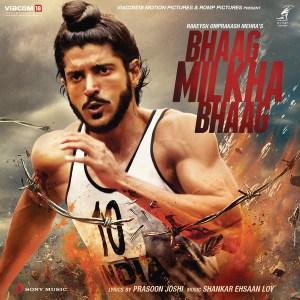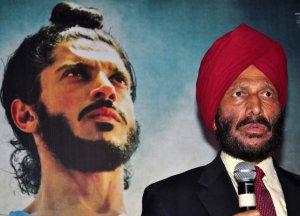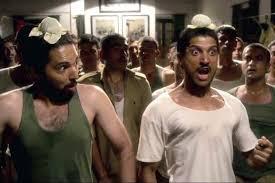 Long time no see, friends! I’m taking a little time away from my studies to say a few words because I found myself inspired and thought I’d share the source. If you haven’t watched Bhaag Milkha Bhaag, please go watch it. Even if you’re solely motivated by the prospect of ogling Farhan Akhtar’s body—I mean seriously, hot damn, when did this happen—you will leave the movie feeling like you’ve just acquired a new hero.
Long time no see, friends! I’m taking a little time away from my studies to say a few words because I found myself inspired and thought I’d share the source. If you haven’t watched Bhaag Milkha Bhaag, please go watch it. Even if you’re solely motivated by the prospect of ogling Farhan Akhtar’s body—I mean seriously, hot damn, when did this happen—you will leave the movie feeling like you’ve just acquired a new hero.

Partition is not in some ancient past and has deeply affected many people of our parents’ and grandparents’ generations. Tormented souls of that time still walk our earth. Some harbor hate, some are troubled, some have made the most out of essentially nothing.
Being the child of immigrants who left their homes, their families, and all that was familiar, for vaguely defined opportunities…is kind of stressful if you think long and hard about all that has been sacrificed over generations for you, you little Desi-American, to flounder about in this land of opportunity and make a name for yourself. Of course our parents want us to be great, of course they want us to have successful jobs and happy families. They didn’t move here to have kids that lived in their parents’ basements into their 30s, playing video games and eating pizza all day. These days I better understand what it means to invest in a future generation and try and provide for them what you weren’t lucky enough to have growing up. I understand when I see the next generation’s bright minds developing and think of all the things I want to say so that they might grow up smarter, might do things a little better than I did, pick up on realities faster than I did, push the limits of human capacity just a little bit farther, be it in physical endurance or creative business strategy or novel scientific perspective. At 15 I thought it was unfair for parents to try and live through their children, make their children just do what they couldn’t do themselves. I think I get it now. It’s hard to not want to save the next generation—especially when you see untapped potential, inherent passion and curiosity, creativity, and a real joy for living. It’s only human. It’s a push to propel the human race forward. I think that’s kind of beautiful, no?
I don’t know which parts of Bhaag Milkha Bhaag are fact and which parts are fiction but it doesn’t matter; it’s someone’s life turned into art. It’s epic, it’s heroic, and precisely the kind of stories we have latched onto since the inception of our kind. Whether Batman, Arjun, Moses, Mohammad, or Odysseus, we are such suckers for protagonists that represent the epitome of even one human virtue—we recognize the difficulty of living up to our ideals and enjoy seeing that they can be lived up to. History is converted to legend over time so that we may indulge and tickle our spirits. How do these stories, with the same archetypal protagonists, continue to warm us, across cultures and throughout the course of time? I love that.
We spend our childhood growing up too fast, excited about the prospects of adulthood, only to find in adulthood a profound nostalgia and appreciation for the simplicity and innocence of our younger years. Never able to find contentment, constantly flailing for something more or just something else, we live. But don’t sit and ponder too long or you’re not living right. It’s a wonder that anyone finds stability in life when the world is such a dynamic and trippy experience sometimes, but at some point, it’s good to buckle down and give something, anything your all. Own it. Eat it. Live it. Breathe it. My biggest setback before grad school was the fear of giving something my 100% and failing. It’s a really pathetic self-limitation. If we are capable of appreciating and imagining the ways in which we can push the limits of human capacity, we are capable of doing so, and we ought to. We think too low of ourselves when we should wake up each morning feeling like we, too, are harboring Milkha Singhs inside of us.
Happy Monday!

P.S. I couldn’t weave this picture into my post in any way that fit but it made me laugh so I’m sticking it in here. Stay goofy, friends. And follow Farhan Akhtar on Twitter because he’s all sorts of wonderful and is one of many faces of feminism we can all appreciate and learn from.

